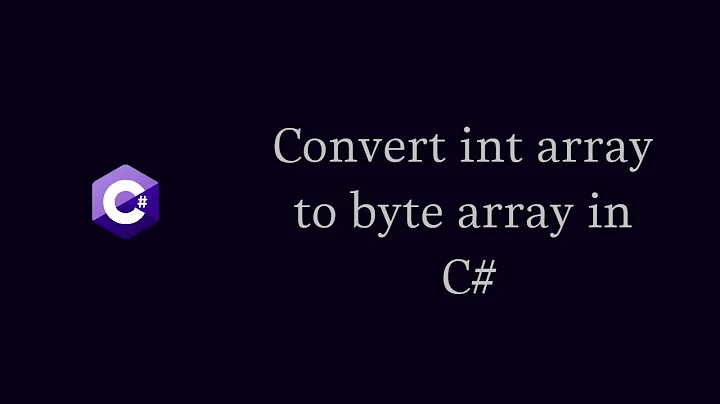How do I dump the struct into the byte array without reflection?
Your best option would probably be to use the gob package and let your struct implement the GobDecoder and GobEncoder interfaces in order to serialize and deserialize private fields.
This would be safe, platform independent, and efficient. And you have to add those GobEncode and GobDecode functions only on structs with unexported fields, which means you don't clutter the rest of your code.
func (d *Data) GobEncode() ([]byte, error) {
w := new(bytes.Buffer)
encoder := gob.NewEncoder(w)
err := encoder.Encode(d.id)
if err!=nil {
return nil, err
}
err = encoder.Encode(d.name)
if err!=nil {
return nil, err
}
return w.Bytes(), nil
}
func (d *Data) GobDecode(buf []byte) error {
r := bytes.NewBuffer(buf)
decoder := gob.NewDecoder(r)
err := decoder.Decode(&d.id)
if err!=nil {
return err
}
return decoder.Decode(&d.name)
}
func main() {
d := Data{id: 7}
copy(d.name[:], []byte("tree"))
buffer := new(bytes.Buffer)
// writing
enc := gob.NewEncoder(buffer)
err := enc.Encode(d)
if err != nil {
log.Fatal("encode error:", err)
}
// reading
buffer = bytes.NewBuffer(buffer.Bytes())
e := new(Data)
dec := gob.NewDecoder(buffer)
err = dec.Decode(e)
fmt.Println(e, err)
}
Related videos on Youtube
kroisse
Updated on June 07, 2022Comments
-
kroisse about 2 years
I already found encoding/binary package to deal with it, but it depended on reflect package so it didn't work with uncapitalized(that is, unexported) struct fields. However I spent a week to find that problem out, I still have a question: if struct fields should not be exported, how do I dump them easily into binary data?
EDIT: Here's the example. If you capitalize the name of fields of
Datastruct, that works properly. ButDatastruct was intended to be an abstract type, so I don't want to export these fields.package main import ( "fmt" "encoding/binary" "bytes" ) type Data struct { id int32 name [16]byte } func main() { d := Data{Id: 1} copy(d.Name[:], []byte("tree")) buffer := new(bytes.Buffer) binary.Write(buffer, binary.LittleEndian, d) // d was written properly fmt.Println(buffer.Bytes()) // try to read... buffer = bytes.NewBuffer(buffer.Bytes()) var e = new(Data) err := binary.Read(buffer, binary.LittleEndian, e) fmt.Println(e, err) }-
Denys Séguret over 11 yearsJust to be sure to understand : you want to serialize the structs in order to be able to deserialize them after ? Will your deserializer know into what struct deserialize ?
-
minikomi over 11 yearsHi! Do you have any example code? And an example of the output you expect?
-
 ANisus over 11 yearsIf you are just trying to a raw binary dump, the
ANisus over 11 yearsIf you are just trying to a raw binary dump, theunsafeis capable of doing what you want. It depends on needs. -
kroisse over 11 years@dystroy First time, I tried to deserialize the struct like this:
type Data struct { id int32, name [16]byte } -
kroisse over 11 yearsIt seems to
namefield was the cause for me, so I started to find how to read the array field in the struct. That's a reason why I spent lots of time. -
kroisse over 11 years@ANisus I need the platform-independent conversion, like a network transfer. so
unsafeisn't suitable for me. -
 ANisus over 11 years@kroisse: As said, it depends on the needs :) . And yes, with platform independance in mind, skip
ANisus over 11 years@kroisse: As said, it depends on the needs :) . And yes, with platform independance in mind, skipunsafe -
 nos over 11 yearsThe traditional way to do this (mostly language agnostic), is to create a separate struct used to put stuff on the network wire from the struct you use for logic in your program. i.e. you create a separate WireData struct, and you convert from your struct Data to WireData before serializing WireData, and the oposite when you receive the data. WireData keeps only the information from Data that needs to be serialized.
nos over 11 yearsThe traditional way to do this (mostly language agnostic), is to create a separate struct used to put stuff on the network wire from the struct you use for logic in your program. i.e. you create a separate WireData struct, and you convert from your struct Data to WireData before serializing WireData, and the oposite when you receive the data. WireData keeps only the information from Data that needs to be serialized.
-
-
kroisse over 11 yearsGreat solution! I tried like this way to use binary.Read/Write manually for each fields, however this code is closer to standard. But... I should match the layout and size of serialized struct. Gob stream is attached some metadata to self-describe the data itself, so the layout was broken.
-
 Minty almost 11 years@dystroy, how can we approach your solution if the object contains another object and so on?
Minty almost 11 years@dystroy, how can we approach your solution if the object contains another object and so on? -
Denys Séguret almost 11 years@Minty it's automatically recursive, so there's no problem. Just add the two functions when you have unexported fields you want to serialize or when you want to customize the serialization.
-
 Minty almost 11 yearsThanks, I need to give it a try.
Minty almost 11 yearsThanks, I need to give it a try. -
 faisal_kk over 9 years@dystroy I'm trying write custom GobEncode/decode for struct type which has Channels and function types .Your solution helped me to move but stuck on above type.Could you please extend your advice on that.Thanks!!
faisal_kk over 9 years@dystroy I'm trying write custom GobEncode/decode for struct type which has Channels and function types .Your solution helped me to move but stuck on above type.Could you please extend your advice on that.Thanks!! -
 starriet about 2 yearsI think this should be corrected: in
starriet about 2 yearsI think this should be corrected: inmain(),enc.Encode(d)->enc.Encode(&d).











